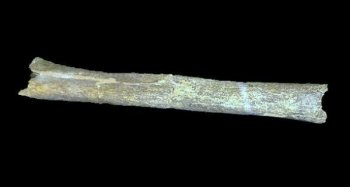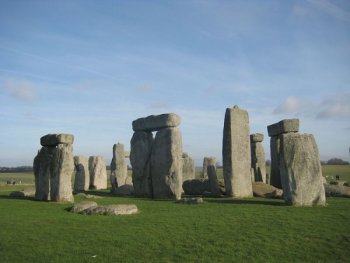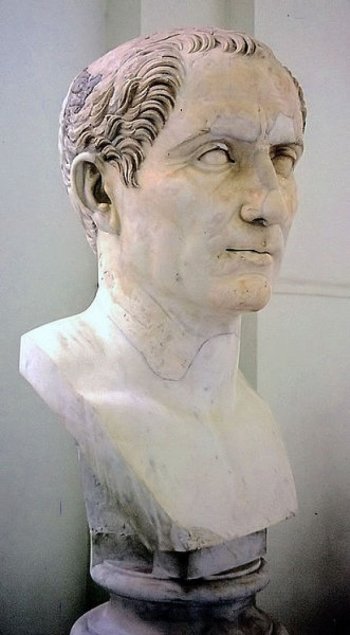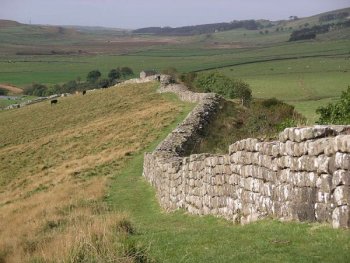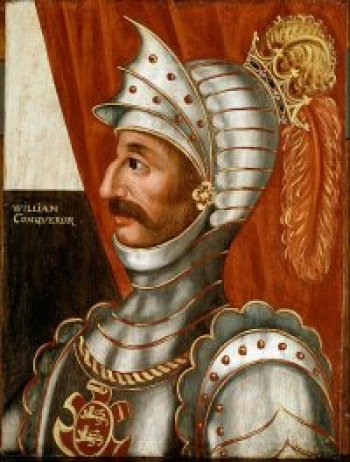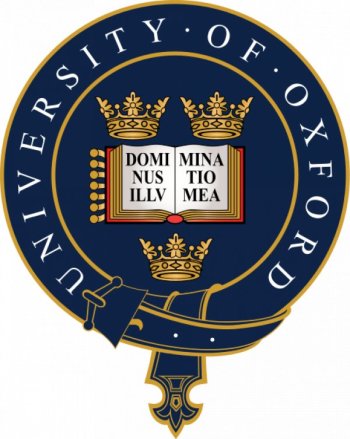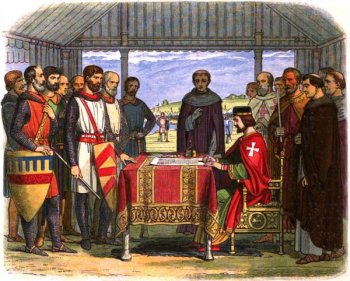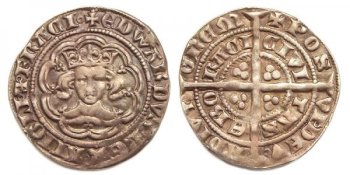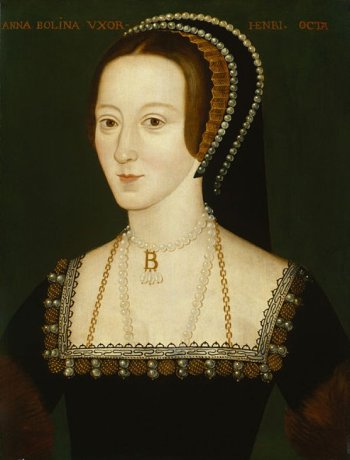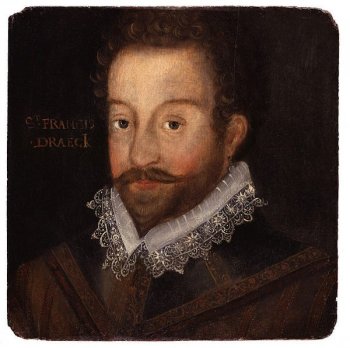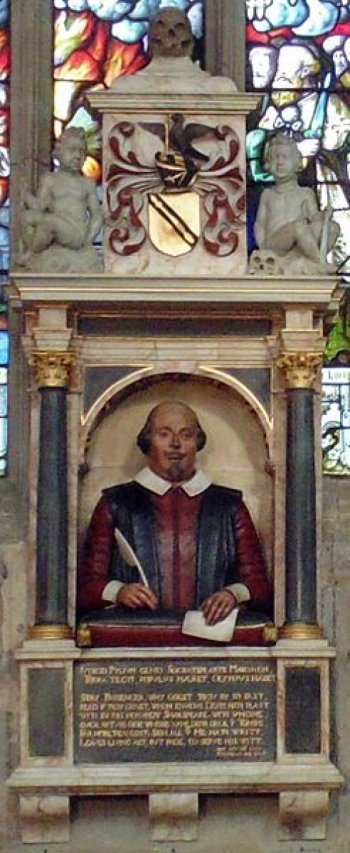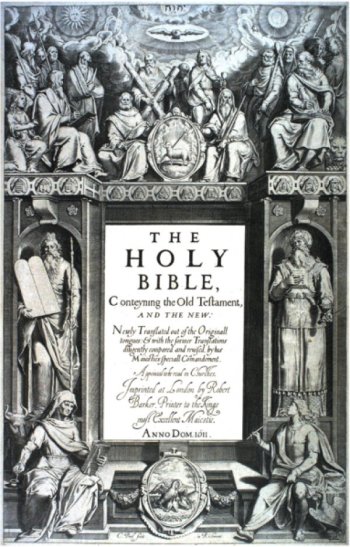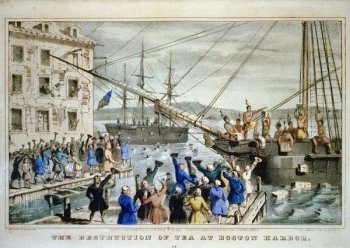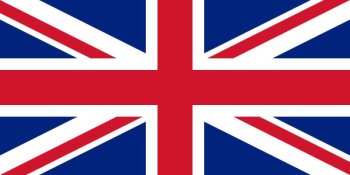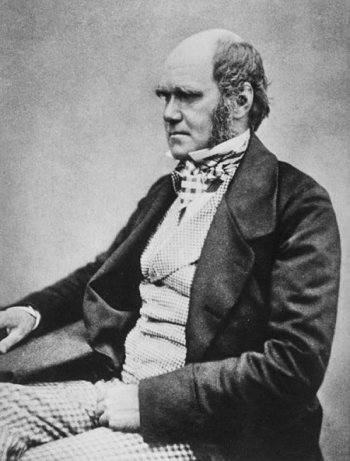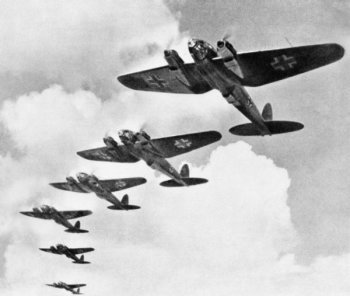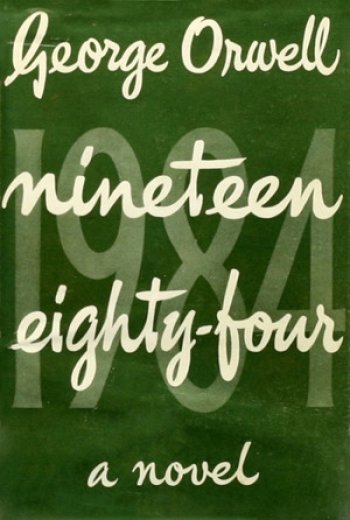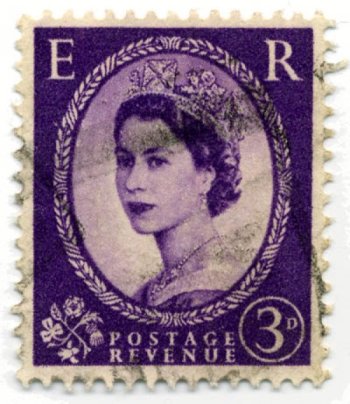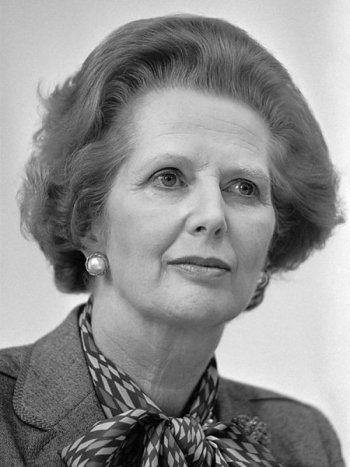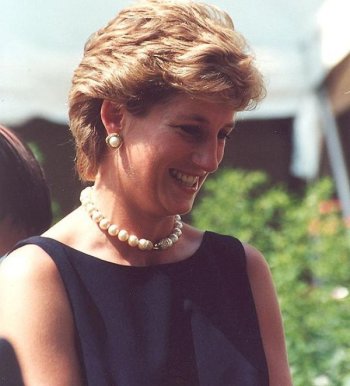History: Historical Timeline
Prehistoric Era
| Date | Event |
|---|---|
| 8200 BCE | With the end of the last Ice Age, the North Sea rises, inundating the land bridge that connects this land mass to the continent. |
| 4500–2500 BCE | Permanent settlements appear and the mining of flint becomes widespread. Polished stone tools replace more primitive tools, and pottery begins to appear. Communal burial is practiced. |
| 3806 BCE | The first wooden trackway to span marshy ground is built. |
| 3300–1200 BCE | Stonehenge, one of several henges found only in these isles, is constructed. Improvements in furnace technology allow for metalwork, primarily using bronze for tools and weapons, and gold for jewelry and ornaments. |
| 1200–800 BCE | The first Celtic culture emerges. Smaller tribes combine, creating a “warrior aristocracy” that evolves into the first tribal kingdoms. |
Antiquity
| Date | Event |
|---|---|
| 500–100 BCE | Hill forts, some quite elaborate with complex earthworks, dot the landscape. Many grow into cities of significant size. |
| 330 BCE | Pytheas, a Greek merchant and explorer, arrives in the British Isles from Massillia (Marseilles) and produces the first written record of the islands. The first gold coins, originally minted in France, appear in Great Britain. |
| 55 BCE | The Roman general, Julius Caesar, leads a force of 10,000 men across the English Channel from his conquest of Gaul. This reconnaissance mission is followed a year later by an invasion force of some 25,000. Trouble back in Gaul forces Caesar to withdraw, but not before the island is brought into Rome's sphere of influence. |
Roman Rule
| Date | Event |
|---|---|
| 20 BC–43 CE | A brisk trade develops between the Roman Empire on the European mainland and the kingdoms on the islands. Grain, slaves, hunting dogs, and precious metals head east, while pottery, wine, and metalwork is imported. The trade adds to the strength of Cunobelinus, king of the Catuvellauni tribe, who becomes the first Britannorum rex, or king of the Britons. |
| 43 CE | Claudius, the Roman emperor, invades what is now called Britannia, defeating the Catuvellaunian army. This victory launches the Roman occupation of the islands that endures for more than 400 years. |
| 122 | The Roman Emperor Hadrian orders the construction of a 117.5-kilometer-long (73-mile-long) stone wall, between what later becomes Newcastle and Carlisle. Hadrian's Wall marks the northern boundary of the Roman Empire. |
| 211 | In an effort to pacify the constant rebellions against its rule, the Romans divide their territory on the island into two provinces, Britannia Superior, with its capital in York, and Britannia Inferior, ruled from London. |
| 314 | Emperor Constantine's Edict of Milan legalizes Christianity, which is slow to take root in Britannia. |
| 409 | With Roman armies withdrawn to Italy to defend Rome from the Goths, Britannia finally succeeds in ending Roman rule. |
Anglo-Saxon Britannia
| Date | Event |
|---|---|
| 449 | Anglo-Saxon invaders arrive in southern and eastern Britannia. |
| 597 | Æthelberht, king of the Anglo-Saxons, converts to Christianity and gives the missionary Augustine, later St. Augustine, land near Canterbury to build a church. |
| 627 | Edwin of Northumbria embraces Christianity, and the religion becomes firmly rooted across Britannia. |
| 789 | One of the first Viking attacks on the British Isles occurs near Dorset, setting the stage for the Viking conquest 75 years later. |
Kingdom of England
| Date | Event |
|---|---|
| 937 | Æthelstan of Wessex destroys the Viking and Scottish armies, becoming the first king of what is now called England. By 954, the last of the Vikings are driven from the island. |
| 1016 | After invading and subduing parts of England, Canute, son of the king of Denmark, manages to gain a unified throne over all of England. |
| 1042 | Edward the Confessor becomes king of England and increases cultural and political contact with the European continent. |
| 1066 | January 6. Harold, earl of Wessex, assumes the throne upon the death of Edward. His authority is challenged immediately by William, the duke of Normandy, and Harald Hardrada, King of Norway, both of whom feel entitled to the throne. Harald Hardrada invades to press his claim, sailing 300 ships up the Humber River and defeating the English army within days. His victory is short-lived, however; King Harold II of England marches north and decimates the Norwegians, who retreat with just 30 of their 300 ships. Meanwhile, William of Normandy is on the move, landing at Pevensy, on England's southern coast. When the two armies meet near Hastings, William prevails and Harold II is killed. December 25. William the Conqueror reaches London and is crowned king. |
| 1096 | The University of Oxford is founded. |
| 1152 | Henry II marries Eleanor of Aquitaine, bringing a large area of France into the British realm. |
| 1154 | Henry II becomes the first Plantagenet king. |
| 1189 | Henry II dies. |
| 1209 | Migrant scholars, fleeing social unrest in Oxford, establish a new university at Cambridge. |
| 1215 | June 15. In response to the nobility's complaints about taxation and royal privileges, King John signs the Magna Carta, for the first time setting forth in writing limitations to royal rights. |
| 1237 | Henry III of England and Alexander II of Scotland sign the Treaty of York, establishing a permanent border between the two countries, a boundary which persists into the 21st century. |
| 1337 | May 24. Edward III declares himself heir to the throne of France, igniting the Hundred Years' War. |
| 1348 | July 7. The first case of the plague is recorded in Dorset. Within weeks, as much as 45 percent of the population dies, and entire villages are wiped out. |
| 1387 | The English language, heretofore considered inferior to French and Latin, is elevated in status with the appearance of Canterbury Tales. Geoffrey Chaucer is later considered the first great poet of the English language. |
| 1415 | Henry V humiliates a larger French force in a victory at the Battle of Agincourt. |
| 1420 | In full control of Normandy, King Henry V gains jurisdiction over all of France as regent in the Treaty of Troyes. |
| 1422 | September 1. Upon Henry V's death, his infant son, Henry VI, becomes king of England and France. |
| 1455 | Henry VI's bouts of insanity lead Richard, Duke of York, to take control. The conflict between the York and Lancaster branches of the royal family becomes known as the War of the Roses and continues, on and off, for thirty years. |
Tudor England
| Date | Event |
|---|---|
| 1485 | The War of the Roses ends with the ascension of the House of Tudor to the throne, in the person of Henry VII, who defeats Richard III and marries Elizabeth of York, thus uniting the houses of Lancaster and York. |
| 1509 | April 21. Upon his father's death, 17-year-old Henry VIII is crowned. Two months later, he marries his brother's widow, Catherine of Aragon. |
| 1521 | Protestantism arrives in England and its spread is hastened when Henry VIII seeks a divorce from Catherine of Aragon, who fails to produce a male heir. The pope dithers, fearing the wrath of the Holy Roman Emperor, Charles V, who happens to be Catherine's nephew. |
| 1533 | Henry VIII breaks with the church in Rome and grants himself authority over the English church, conveniently awarding himself the divorce he has been seeking. He marries Anne Boleyn, who is already pregnant with his child. The following year, the Church of England is officially established as separate from that of Rome. |
| 1536 | Henry VIII executes his wife, Anne Boleyn, on trumped-up charges of adultery, incest, and treason; the real reason is likely her failure to produce a male heir. Their marriage does produce a daughter, Elizabeth. |
| 1553 | July 19. Mary, the daughter of Henry VIII and Catherine of Aragon, is crowned the first queen of England in her own right. A fervent Catholic, she vows to reverse the spread of Protestantism propounded by her father and to restore England to Roman Catholicism. |
| 1558 | November 17. Upon her half-sister's death from illness, Elizabeth I assumes the throne. The following year, the Catholic mass is declared illegal, and the Book of Common Prayer, the Protestant prayer book, becomes the only official religious text throughout England and Wales. |
| 1580 | September 26. Francis Drake completes the first circumnavigation of the globe by an English mariner. |
| 1585–1613 | William Shakespeare gains a reputation as an actor, playwright, and part-owner of the Lord Chamberlain's Men, a theater company. During his career, Shakespeare produces some 30 plays, as well as numerous sonnets and poems, and becomes arguably the greatest writer in the English language. |
Union of the Crowns
| Date | Event |
|---|---|
| 1603 | Upon the death of Queen Elizabeth I, her cousin, James VI of Scotland, ascends the throne of England as James I, for the first time uniting England, Scotland, and Ireland under a single monarch. |
| 1607 | Captain John Smith establishes Jamestown, in Virginia, the first permanent British colony in North America. |
| 1611 | The King James Bible is published in England, not only uniting the Protestant Church, but also standardizing the English language. |
| 1620 | A group of religious zealots flee England aboard the Mayflower, landing at Plymouth Rock, Massachusetts. |
| 1642 | August 22. After dissolving parliament and establishing personal rule, Charles I ignites a civil war, pitting the royalists against the parliamentarians. Two years later, the parliamentarians join forces with the Scottish army to defeat Charles I's northern army. |
| 1649 | Oliver Cromwell, leader of the parliamentarians, advocates for the execution of Charles I. January 30. Charles I is beheaded. |
| 1653 | Oliver Cromwell names himself Lord Protector, assuming monarchical power. |
| 1658 | Upon Cromwell's death, his son Richard fails to gain a following and the government devolves into chaos. Determined to restore order, senior army officers bring Charles II back from exile and install him on the throne. For the time being, England's flirtation with republicanism is over. |
| 1665 | Bubonic plague sweeps through London, wiping out a quarter of the capital's population. |
| 1666 | The Great Fire of London destroys two-thirds of the city. The silver lining, however, is the emergence of architect Christopher Wren, who supervises the rebuilding of more than 50 churches. |
| 1689 | February 13. King William and Queen Mary accept a Declaration of Rights, which parliament ratifies in December as the “Bill of Rights,” outlining the rights of every British subject (more or less). This document, which remains in effect into the 21st century, becomes the model on which other constitutions around the world are based. |
| 1694 | Parliament establishes the Bank of England to manage the national debt and print currency. The following year, the Bank of Scotland is established with a similar charter. |
Great Britain
| Date | Event |
|---|---|
| 1707 | May 1. Under the Acts of Union, the kingdoms of England, Scotland, and Wales unite to form the Kingdom of Great Britain. |
| 1714 | August 1. The last of the Stuart monarchs, Queen Anne, dies at Kensington Palace. George I, the first of the Hanoverian rulers, succeeds her. |
| 1718 | The first of more than 50,000 convicts are deported to Virginia and Maryland. |
| 1721 | King George gives Sir Robert Walpole the keys to 10 Downing Street, and with them the powers (but not yet the title) of prime minister. |
| 1756 | The first global war, ostensibly between Britain and France, erupts and spreads to Europe, India, and the Americas. By the end of the war, in 1763, the British are victorious, claiming Quebec, Florida, Minorca, parts of India, and the West Indies as spoils. |
| 1765 | Parliament levies “stamp” taxes in Britain's American colonies, triggering protests and rioting. Though the act is repealed the following year, the revolutionary fervor it ignites only increases. Other taxes soon follow, all eventually repealed save one: the tax on tea. |
| 1773 | December 16. Colonists disguised as Native Americans board ships of the East India Company anchored in Boston Harbor and cast chests of tea overboard in protest of the tea tax, in what becomes known as the Boston Tea Party. |
| 1775 | April 18. The American War of Independence begins when British army regulars clash with colonists at Lexington, Massachusetts. No one knows for sure which side fired the first “shot heard around the world.” |
| 1781 | October 19. American fighters defeat the British army at Yorktown, Virginia, assuring the American victory. |
| 1788 | The first edition of the Times of London is published. |
United Kingdom of Great Britain and Ireland
| Date | Event |
|---|---|
| 1801 | January 1. The United Kingdom of Great Britain and Ireland is formally created with the Acts of Union, which join England, Scotland, and Wales (Great Britain) with Ireland. The Irish parliament in Dublin is dissolved, and Catholics are prevented from voting in general elections or holding parliamentary office. It takes another 28 years before Catholics are emancipated. |
| 1805 | The successful Battle of Trafalgar leaves Britannia ruler of the waves. With Napoléon in control of most of Europe, the United Kingdom wars with France for ten more years until Napoléon is defeated, once and for all, in the Battle of Waterloo. |
| 1825 | The world's first steam locomotive carries passengers from Stockton to Darlington. |
| 1838 | A year after Queen Victoria is crowned, the Victorian Age begins in earnest with the publication of Charles Dickens' Oliver Twist. |
| 1854 | March 28. To check Russian expansionism on the Crimean peninsula and in the Balkans, the United Kingdom and France declare war on Russia. The Russians are halted, but at a high cost to the UK, whose army is shown to be poorly equipped. |
| 1859 | Charles Darwin publishes On the Origin of Species, introducing the world to the theory of evolution and igniting a firestorm among religious purists who reject the implication that the Bible's creation story is inaccurate. |
| 1872 | The United Kingdom solidifies its control of the Indian subcontinent by declaring Victoria Empress of India. |
| 1901 | Queen Victoria dies at age 81, ending her reign over fully one-fourth of the world's population and ushering in a tumultuous 20th century. |
| 1911 | August. Liberalism leaps forward when the House of Lords loses its power to veto legislation that passes the House of Commons. December. The government introduces a plan providing for health insurance and unemployment compensation, the eventual foundation of the welfare state. |
World War I and Inter-war Period
| Date | Event |
|---|---|
| 1914 | The United Kingdom declares war on Germany when German troops enter neutral Belgium on their way to attack France. Later the same year, the United Kingdom declares war on German's ally, the Ottoman Empire. |
| 1917 | The United Kingdom announces its support of a Jewish homeland in Palestine with the Balfour Declaration, sowing the seeds for an eventual independent State of Israel. |
| 1918 | November 11. The First World War ends with the signing of an armistice. The terms are harsh, setting the stage for years of hardship in Germany that ultimately give rise to Adolph Hitler and the Third Reich. |
| 1921 | Ireland is partitioned, creating an Irish “Free State” within the British Empire. The Anglo-Irish Peace Treaty fails to satisfy the republicans, who want immediate independence. The pro-treaty faction are content to wait for gradual independence. The conflict deepens and, in June the following year, Irish civil war results. |
| 1926 | Australia, New Zealand, Canada, and South Africa win dominion status and full autonomy. |
| 1936 | King Edward VIII abdicates his throne to marry Wallis Simpson, an American divorcée. |
| 1937 | Edward VIII's younger brother, George VI, is crowned king. |
World War II
| Date | Event |
|---|---|
| 1939 | September 3. Great Britain declares war on Germany after the Nazis invade Poland two days earlier, signaling the start of World War II. |
| 1940 | August 13. The Battle of Britain begins with a massive German air assault. The Royal Air Force turns back the German advance. The following month, 950 aircraft of the German Luftwaffe begin daylight bombing of London. Nearly two months of continuous bombing inflict heavy casualties. |
| 1944 | June 6. The beginning of the end arrives with D-Day, the largest amphibious invasion in history, when American and UK troops land in France to retake Europe from the Nazis. Eleven months later, the United Kingdom celebrates the end of war in Europe. |
Modern United Kingdom
| Date | Event |
|---|---|
| 1947 | August 15. India wins its independence from Britain, and the country is partitioned into India and Pakistan. |
| 1948 | July 5. The United Kingdom establishes the National Health Service, providing government-sponsored health care for all. The United Kingdom ends its mandate in Palestine, granting independence to Israel. |
| 1949 | The Republic of Ireland Act ends British rule in Ireland. That same year, George Orwell publishes 1984, a thinly-veiled parable warning of the dangers of Communism in the Soviet Union. |
| 1952 | Elizabeth II ascends the throne upon the death of her father, George VI. |
| 1957 | The United Kingdom gives up its Gold Coast colony, giving rise to the independent nation of Ghana. |
| 1967 | The United Kingdom legalizes abortion and homosexuality. The Beatles release “Sgt. Pepper's Lonely Hearts Club Band,” a pop culture milestone. |
| 1969 | The Divorce Reform Act passes, legalizing no-fault divorce. |
| 1970 | The Equal Pay Act requires equal pay and working conditions for men and women in the same position. |
| 1972 | January 30. “Bloody Sunday” in Northern Ireland leaves 14 protestors dead when British troops open fire. Whether Irish Republic Army fighters fired first remains an open question. |
| 1979 | May 3. Margaret Thatcher, a conservative, becomes the United Kingdom's first female prime minister. Irish Republican Army (IRA) terrorists kill Lord Louis Mountbatten, the queen's cousin, on the same day they murder 18 British soldiers. |
| 1982 | Argentina invades the Falkland Islands, prompting Thatcher to send a naval task force to liberate the islands. Argentina's defeat leads to democratic reforms. |
| 1987 | Prime Minister Thatcher wins a third term, making her the longest-serving prime minister in 150 years. |
| 1997 | The United Kingdom returns Hong Kong to Chinese control upon expiration of its 99-year lease of the territory. Diana, the Princess of Wales and ex-wife of Charles, Prince of Wales and heir to the throne, is killed in a car crash in Paris. |
| 1998 | The Good Friday Agreement ends the United Kingdom's conflict with the IRA over Northern Ireland. |
21st Century
| Date | Event |
|---|---|
| 2001 | Laborite Tony Blair is reelected prime minister. He sends British troops to fight the Taliban alongside American and coalition forces in Afghanistan. Two years later, the United Kingdom joins American forces in an attack on Iraq. |
| 2008 | January. People suffering from the winter's norovirus "stomach bug" reaches three million. August. Great Britain places fourth in medal count totals at the Beijing Olympics, winning 19 gold, 13 silver and 15 bronze medals. October. The government part nationalizes three main UK banks, giving them a 37 billion pound (US$48 billion) rescue package. |
| 2009 | The UK economy shows a recovery from the recession, with .1% growth. Britain removes troops from Iraq, leaving only small force charged with training Iraqi military. |
| 2010 | The Conservative Party leader, David Cameron, becomes prime minister. |
| 2011 | Twenty-nine-year-old Mark Duggan dies after being shot by police, setting off five days of rioting and looting in areas of London and England, with damages estimated at more than 200 million pounds (US$63 million). |
| 2012 | London is site of summer Olympic games. |
| 2013 | Duchess of Cambridge, Catherine, gives birth to son, George, who is third in line to the throne. |
| 2014 | September 18. A referendum for Scottish independence attracts a voter turnout of 84 percent, but fails to pass, with 55 percent of voters opting to remain part of the UK. |
| 2015 | May. The Conservative Party wins the majority in the general election for the first time since 1992. |
| 2016 | June 23. Citizens of the United Kingdom pass the "Brexit" referendum, authorizing the country's withdrawal from the European Union. July 13. Conservative Party leader Teresa May succeeds David Cameron as prime minister. |
| 2017 | March–September. Terror attacks reach five for the year, with the bombing outside Britain's Manchester Arena the deadliest. Twenty-two people die in the explosion and over 200 are injured. |
| 2018 | May. Prince Harry, second son of Prince Charles and the late Princess Diana, sixth in line to the throne, marries American actress, Meghan Markle. |
| 2020 | January 29. The United Kingdom confirms its first case of the deadly COVID-19 virus. The spread of the virus is declared a pandemic by the World Health Organization on March 11. January 31. The United Kingdom withdraws from the European Union (EU). It is the first and so far only sovereign nation to leave the EU. |
| 2021 | April 9. Prince Phillip, husband of Queen Elizabeth II, dies at Windsor Castle, aged 99. Phillip, the Duke of Edinburgh, was the longest-serving consort in the history of the British monarchy. Coronavirus lockdown rules are eased across the country and pubs, salons, and other "non-essential" businesses re-open. July. Team Great Britain makes, "the greatest achievement in British Olympic history" at the 2020 Tokyo Olympic Games, according to its team captain. The Games had been postponed one year due to the coronavirus pandemic. Team GB wins 65 medals including 22 gold, with cyclist Jason Kenny becoming Britain's most successful Olympian ever when his gold medal win brings his overall medal count to nine. His wife, cyclist Laura Kenny, becomes the first British woman to win gold at three consecutive Olympics, while 13-year-old skateboarder, Sky Brown, wins a bronze medal, making her Team GB's youngest ever medallist. Additionally, swimmer Duncan Scott becomes the first British athlete to win four medals at a single Olympics. |
| 2022 | February. The Platinum Jubilee is held to celebrate Queen Elizabeth II's 70-year reign, making her the first British Monarch to reach the milestone. July. UK Prime Minister Boris Johnson resigns following a two-day period when more than 50 members of parliament resigned from his government. September 6. Liz Truss becomes the UK's new prime minister, appointed by Queen Elizabeth just two days before the queen dies. September 8. Queen Elizabeth II dies at Balmoral Castle in Scotland, aged 96. She was the United Kingdom's longest-serving monarch, ruling for 70 years, with 15 prime ministers serving under her. Her oldest son, Charles, becomes the King of the United Kingdom, and will be called King Charles III. |
Copyright © 1993—2024 World Trade Press. All rights reserved.

 United Kingdom
United Kingdom 